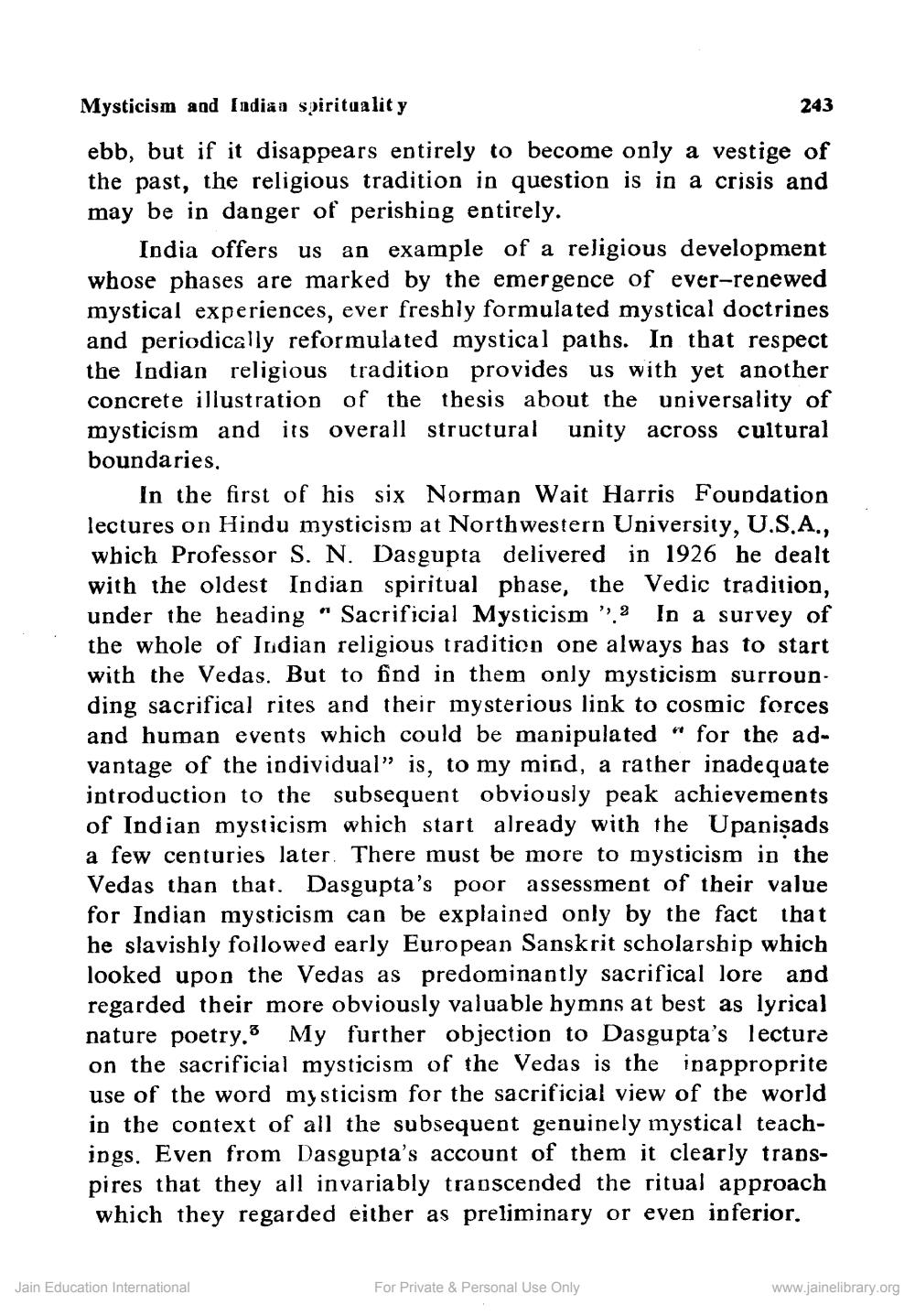________________
Mysticism and India a spirituality
243
ebb, but if it disappears entirely to become only a vestige of the past, the religious tradition in question is in a crisis and may be in danger of perishing entirely.
India offers us an example of a religious development whose phases are marked by the emergence of ever-renewed mystical experiences, ever freshly formulated mystical doctrines and periodically reformulated mystical paths. In that respect the Indian religious tradition provides us with yet another concrete illustration of the thesis about the universality of
ism and its overall structural unity across cultural boundaries,
In the first of his six Norman Wait Harris Foundation lectures on Hindu mysticism at Northwestern University, U.S.A., which Professor S. N. Dasgupta delivered in 1926 be dealt with the oldest Indian spiritual phase, the Vedic tradition, under the heading " Sacrificial Mysticism'? In a survey of the whole of Indian religious tradition one always has to start with the Vedas. But to find in them only mysticism surroun. ding sacrifical rites and their mysterious link to cosmic forces and human events which could be manipulated for the advantage of the individual" is, to my mind, a rather inadequate introduction to the subsequent obviously peak achievements of Indian mysticism which start already with the Upanişads a few centuries later. There must be more to mysticism in the Vedas than that. Dasgupta's poor assessment of their value for Indian mysticism can be explained only by the fact that he slavishly followed early European Sanskrit scholarship which looked upon the Vedas as predominantly sacrifical lore and regarded their more obviously valuable hymns at best as lyrical nature poetry.3 My further objection to Dasgupta's lecture on the sacrificial mysticism of the Vedas is the inapproprite use of the word mysticism for the sacrificial view of the world in the context of all the subsequent genuinely mystical teachings. Even from Dasgupta's account of them it clearly trapspires that they all invariably transcended the ritual approach which they regarded either as preliminary or even inferior.
Jain Education International
For Private & Personal Use Only
www.jainelibrary.org




